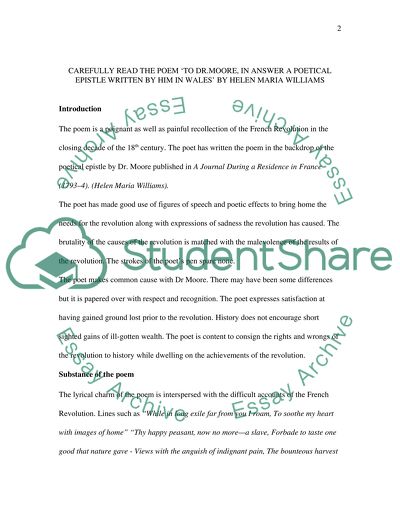Cite this document
(“Helen Maria Williams Poetry Book Report/Review Example | Topics and Well Written Essays - 1500 words”, n.d.)
Helen Maria Williams Poetry Book Report/Review Example | Topics and Well Written Essays - 1500 words. Retrieved from https://studentshare.org/literature/1533207-helen-maria-williams-poetry
Helen Maria Williams Poetry Book Report/Review Example | Topics and Well Written Essays - 1500 words. Retrieved from https://studentshare.org/literature/1533207-helen-maria-williams-poetry
(Helen Maria Williams Poetry Book Report/Review Example | Topics and Well Written Essays - 1500 Words)
Helen Maria Williams Poetry Book Report/Review Example | Topics and Well Written Essays - 1500 Words. https://studentshare.org/literature/1533207-helen-maria-williams-poetry.
Helen Maria Williams Poetry Book Report/Review Example | Topics and Well Written Essays - 1500 Words. https://studentshare.org/literature/1533207-helen-maria-williams-poetry.
“Helen Maria Williams Poetry Book Report/Review Example | Topics and Well Written Essays - 1500 Words”, n.d. https://studentshare.org/literature/1533207-helen-maria-williams-poetry.


